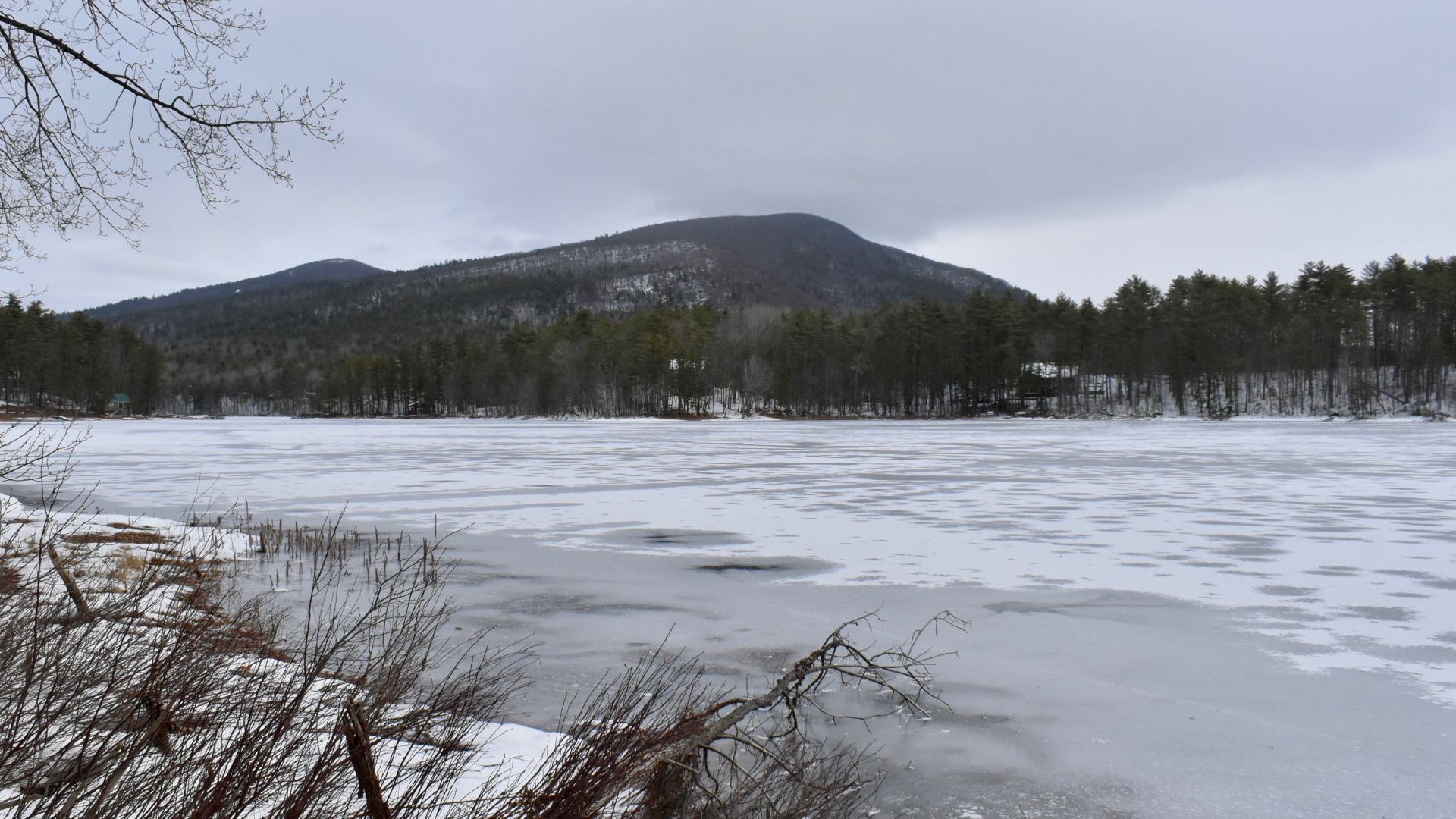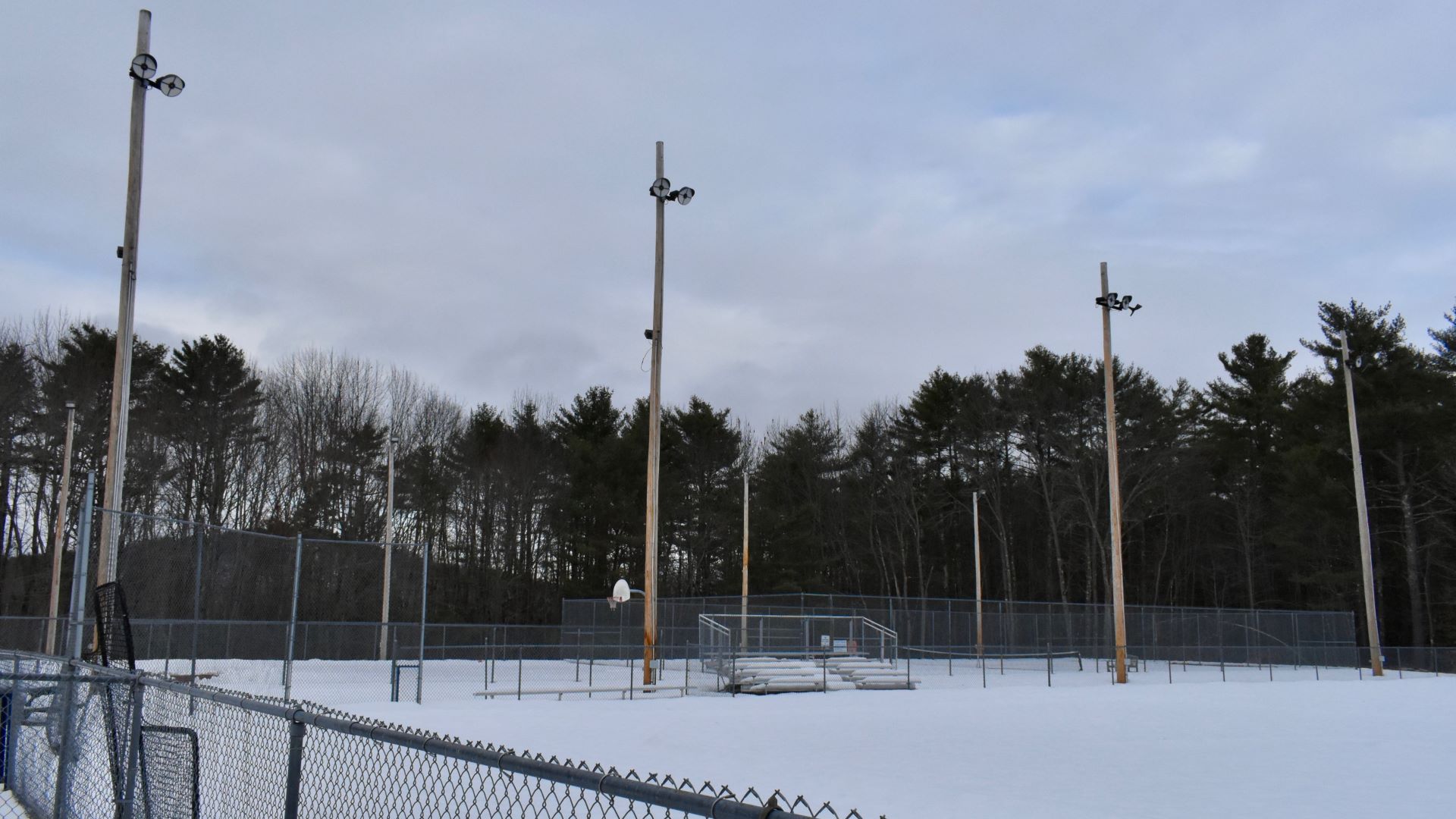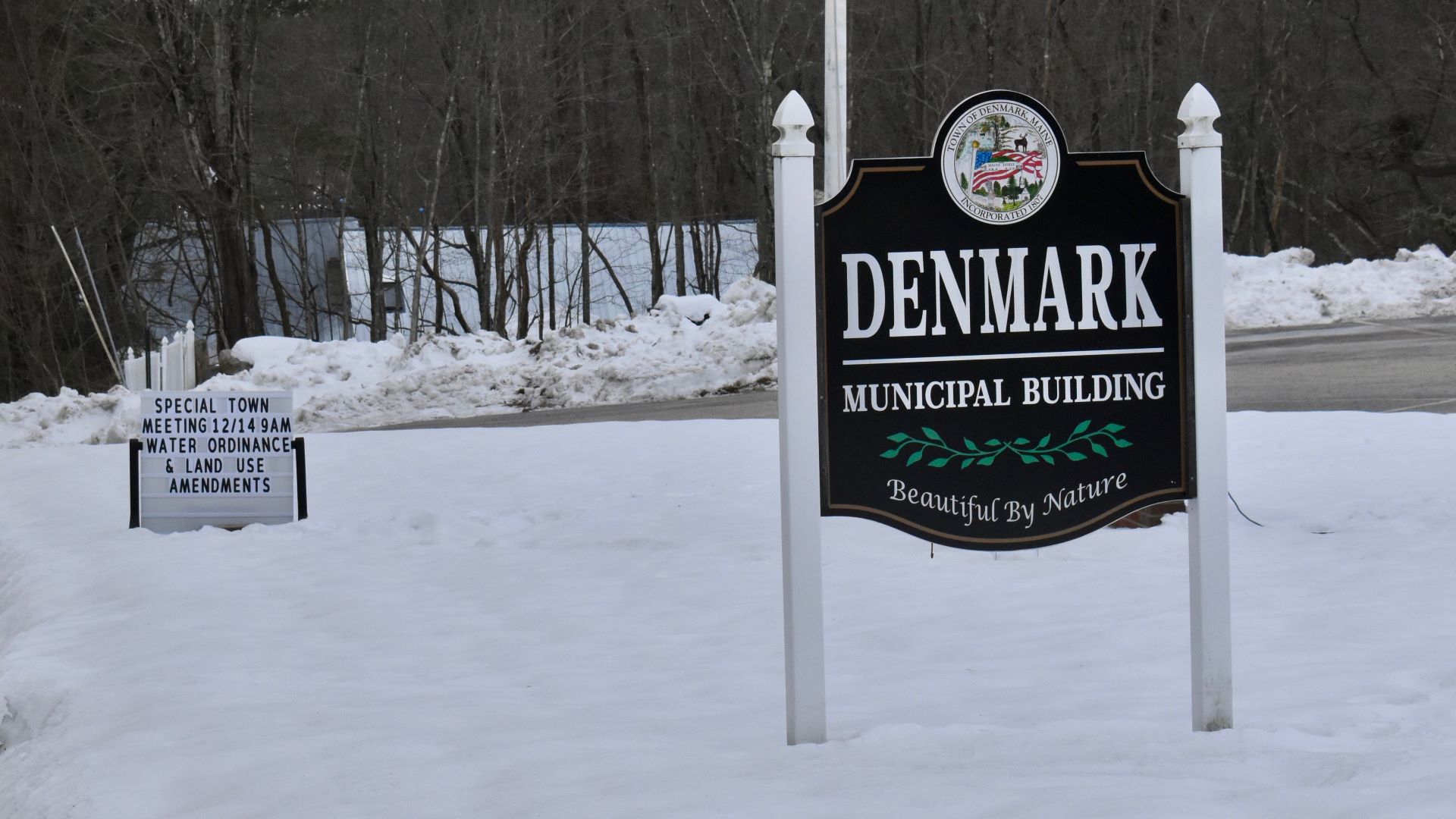In the last week of one of Maine’s driest falls on record, a meager turnout of just 19 Denmark residents unanimously voted to expand the town’s authority over bottled water behemoth Poland Spring and large-scale water extraction from local aquifers.
The amendment approved at a Dec. 14 special town meeting gives Denmark powers to reduce or halt private water extraction when aquifer levels hit certain thresholds and to require large-scale extractors like Poland Spring to apply for new permits when their corporate ownership changes.
Years in the making, the policies come just over a month after Poland Spring’s former parent company, Blue Triton Brands, finalized its merger with a rival corporate water bottler to form Primo Brands on Nov. 8, narrowly avoiding the new permit transfer process the company would be subjected to under the new rules.
Laurie LaMountain, one of the citizen members of the committee who drafted the ordinance amendment for the town select board to finalize, sees the amendment’s passage as a major step forward in safeguarding a vital resource for Denmark residents in the face of climate change.
“I knew going into it there would be sticking points, but my intention from the beginning was to advocate for the environment and those of us who depend on its sustenance,” LaMountain said in an email.
At the same time, she can’t help but recognize the amendment’s post-merger passage and the omission of stricter policies voted down by her committee and the town select board as shortcomings.
Separate measures to set a town-wide limit on large-scale water extraction and a more stringent requirement for companies to provide real-time data on their extraction activities were ultimately axed or diluted.
“Is the new ordinance an improvement over the original? Yes,” LaMountain said. “But it could have been stronger… especially in light of a changing climate that is resulting in more frequent and prolonged drought.”
Once a trailblazer, Denmark has gone over a decade since last updating its ordinance in 2012. Meanwhile, former Poland Spring owner Nestlé sold the company and its other bottled water brands to two private equity firms in 2021. The new owners changed the name of Poland Spring’s parent company to BlueTriton Brands, before the November merger with Primo Water.
It wasn’t until late 2021, after Poland Spring asked to renew its extraction permit to annually withdraw 105 million gallons of water (around 150 Olympic-sized swimming pools worth), that the Denmark select board decided to designate a town committee to analyze and recommend ordinance updates.
Meeting for the first time in May 2022, the water ordinance review committee’s early discussions were partially spent wrestling with the makeup of the committee itself.
The committee’s initial structure included a non-voting member from Poland Spring — Mark DuBois, the company’s natural resource manager — in addition to a selectman, three citizen volunteers and the town manager who comprised the voting members.
Although select board members didn’t believe there was a conflict of interest, they ultimately voted to remove Poland Spring’s nonvoting position, according to town manager Betty LeGoff, after opposition from LaMountain and fellow citizen committee member Audrey Rabinowitz.
The town also hired a hydrogeologist from Westbrook-based engineering firm Credere Associates, who began attending meetings.
The committee drafted and sharpened substantial amendments to the ordinance through last June, which were then pared down and revised by the select board.
What’s new?
The ordinance changes begin by acknowledging the influence of climate change on drought and groundwater reserves as a reason for protecting local water through regulation, a timely statement after last fall was declared one of Maine’s top five driest on record, according to the Maine Drought Task Force.
At the time of the amendment’s passage on Dec. 14, roughly 61 percent of the state was in Moderate Drought, including most of Oxford County. The county also hosted three of the 23 private wells in Maine that reportedly went dry in 2024.

Up in Franklin County, Poland Spring voluntarily reduced withdrawals at its Kingfield water extraction facility after low flows were reported in a nearby stream, according to Mark Margerum with the Maine Department of Environmental Protection.
Poland Spring is allowed to withdraw up to 200 million gallons per year from its Kingfield site (almost double what it can take from Denmark), and because it stayed within that threshold during its cutback, Margerum said the company was not required to report to the DEP how much less water it extracted due to the drought.
A spokesperson for Poland Spring did not specify where precautions have been taken during the drought, nor how much water extraction may have decreased, but said, no restrictions are currently in place.
“(W)hen conditions become dry, we balance water collection from our network of geographically diverse spring water sources to help protect regional water resources,” the spokesperson said in a statement.
One of the more substantial updates tweaks the ordinance’s language defining “alert” and “action” levels, variables that measure the condition and depth of water sources near an extraction well that are monitored through weekly testing.
As previously written, reaching an “alert” level requires the extractor, i.e. Poland Spring, to increase monitoring activities until hydrogeologic conditions no longer indicate potential or future harm to the water sources, but allows the company to keep drawing water.
When the more critical “action” level is hit, meaning the water resource is at risk of being damaged, the select board (with advice from a technical expert) can reduce or halt extraction until it determines that any risk or harm to the water source and neighboring wells or water bodies has subsided.
Whereas the ordinance’s previous language allowed the select board to revise the levels and make them more or less lenient based on monitoring data, a new provision only allows the select board to further restrict levels unless there’s evidence of an error.

LaMountain and Rabinowitz, the members who had questioned Poland Spring’s place on the committee — described the phrasing as a way to make the ordinance as strong as possible when the committee finalized its draft last June.
LaMountain pointed to an example in 2012, when the select board relaxed the action and alert levels for some Poland Spring wells after the company requested it.
“We wanted to put in failsafes so that in the future, we don’t have to worry about these things,” said Rabinowitz.
BlueTriton representatives suggested cutting that line at the time.
“There’s no technical reason, if the data supports it, not to allow the board to relax the action and alert levels,” they argued. The pushback led to disagreement among committee members about the ordinance’s goals, but ultimately the provision held.
One committee-recommended provision that didn’t make it into the amendment was a requirement for water extractors to upload real-time extraction data to Denmark’s town website, swapping it for more convoluted phrasing.
Whereas previous language required around-the-clock reporting on the town website, the select board’s November revision leaves it up to the discretion of the select board, which can call for real-time reporting based on unspecified criteria, to be published in an unspecified format and an unspecified media.
“Real-time data reporting was another goal we wanted to achieve,” LaMountain said, but the select board’s revised language “does not provide specificity.”
In a statement, a spokesperson for Poland Spring commended the new amendment, saying, Poland Spring will “continue to support reasonable science-based oversight, designed to be protective of this important resource and equitable among users while being environmentally sustainable. We believe the Town of Denmark’s Water Extraction Ordinance demonstrates just that.”







